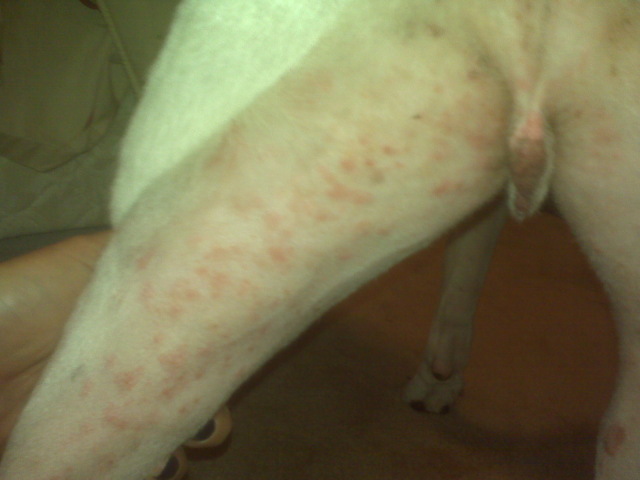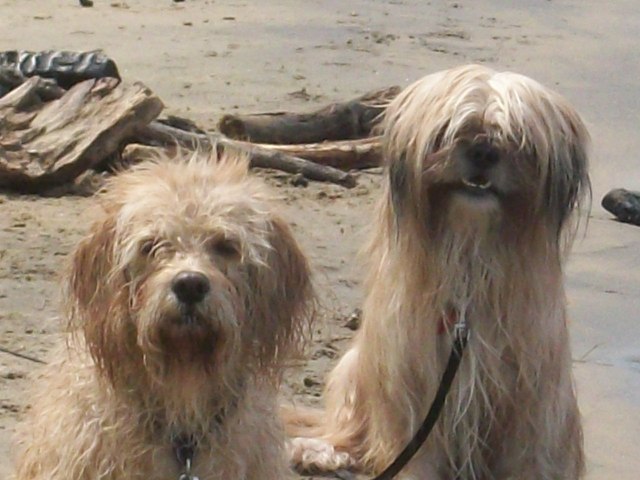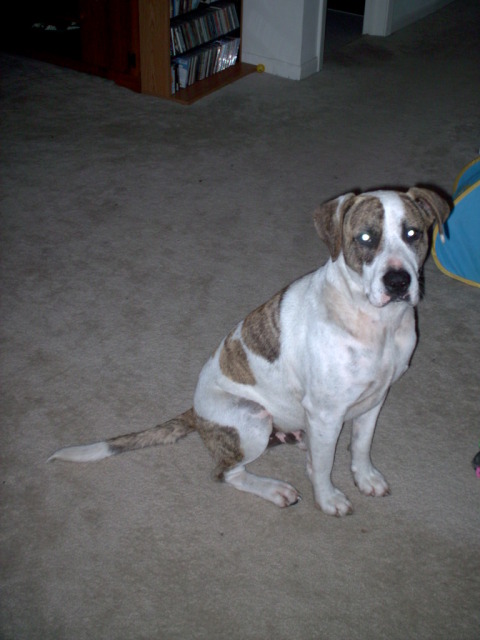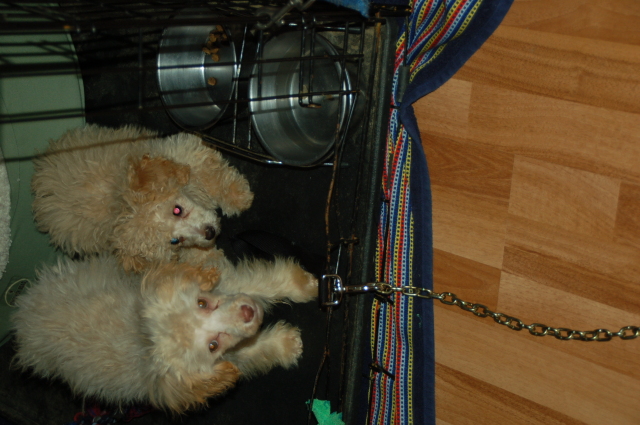Questionmy son has a 3 yr. old golden doodle female. the biggest problem is she gets so excited when anyone goes near her that she pees. she listens best to my son. they have a 9 and 6 yr. old and a new baby. she barks and wakes up the baby sometimes. she has been to two different obedience classes and still pees. i think he is going to buy a bark collar for the barking but the peeing is really starting to drive him nuts. thinking about giving her to his father where he will be with no kids. any suggestions?
AnswerHi Anne,
As far as the peeing goes, your son's dog doesn't have an obedience problem, and it's not a house training issue either. It sounds like she has, what's called "Submissive Urination", however it's common for female dogs to develop urinary tract infections. This can make it hard for the dog to hold her urine in times of excitement, so a vet exam to rule out a possible medical problem should first be done.
After ruling out a medical cause, fixing a submissive urination problem starts with understanding what signals trigger the dog's reaction. First, dogs assume that direct eye contact is a challenge. For a submissive dog, even a moment's eye contact can be intolerable. Eye contact from above, indicating that they other dog is taller, heightens this reaction. For Rocky, a person towering over the top of him is guaranteed to cause a submissive gesture.
Another signal that dogs perceive as a challenge is bending over or touching the it's head, neck or shoulders. Dominant dogs often display their control by placing their neck, or a paw over another dog's neck or shoulders. When a human pats a dog on the head, a submissive dog perceives it as a display of dominance. The dog is likely to roll over on its back and wet.
To change the dog's greeting behavior, your son needs to avoid those situations that instantly trigger urination. When he gets home he needs to avoid eye contact, and not bend over to greet the dog, and in general ignore the dog for the first few minutes. If your son does not trigger the reaction, he can try some very calm words of greeting and gradually add physical affection over the next few minutes. After the physical affection, if the dog still has not urinated , your son can tell his dog "good girl" and give her a treat.
The use of food for successful greetings is an important ingredient for success. Since physical petting may actually cause the behavior to happen, food as a reinforcement is a logical alternative. Another advantage to using food is that urination and eating are very difficult for a dog to do at the same time. The dog's response to the food competes with the urge to eliminate, and strengthens the correct behavior.
Guests to the home should be encouraged to pretend the dog doesn't exist. If they absolutely must greet her, confine the greeting to outdoors. Barriers such as child-gates can allow the dog to get used to the person's presence before actually greeting them. While this reduces her tendency to eliminate at first sight, you must still eventually deal with the actual greeting. When you remove the gate, it is a good idea to discourage her from rushing quickly at people and jumping on them, as it puts him in a position that is likely to trigger the submissive urination.
A dog that displays submissive urination should not be punished or scolded! This will only make the problem worse.
You can pass the following web sites on to your son:
http://www.usask.ca/wcvm/herdmed/applied-ethology/behaviourproblems/suburine.htm...
http://www.sspca.org/Dogs/Urination.html
http://www.perfectpaws.com/subr.html
As far as the barking goes, he can try increasing the amount of daily exercise his dog receives each day. A tired dog is a quiet dog! Your son should contact the trainer he did the obedience class with and do some extra work with the dog. It's defiantly something a dog can be trained out of doing.
Best of luck,
Patti

 Large dog with possible poison ivy
Question
Guero
My poor dog has led a rough life to date
Large dog with possible poison ivy
Question
Guero
My poor dog has led a rough life to date
 re: dog breed
Question
Dog pic question about
Hi Patti,
I took in a
re: dog breed
Question
Dog pic question about
Hi Patti,
I took in a
 dog jumping fence
Question
dog
I have a 3 year old Staffordshire/Lab that
dog jumping fence
Question
dog
I have a 3 year old Staffordshire/Lab that
 2 puppies one lab the other lab/shepherd mix
Question
Bailey ( female lab) a
I have a 3 1/2 month ol
2 puppies one lab the other lab/shepherd mix
Question
Bailey ( female lab) a
I have a 3 1/2 month ol
 puppy behavior
Question
Cooper and Guy
Hi, thanks so much for reading
puppy behavior
Question
Cooper and Guy
Hi, thanks so much for reading